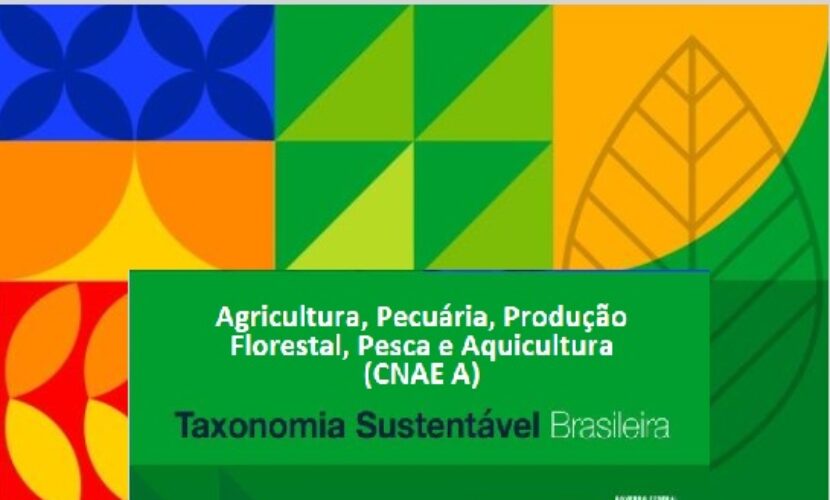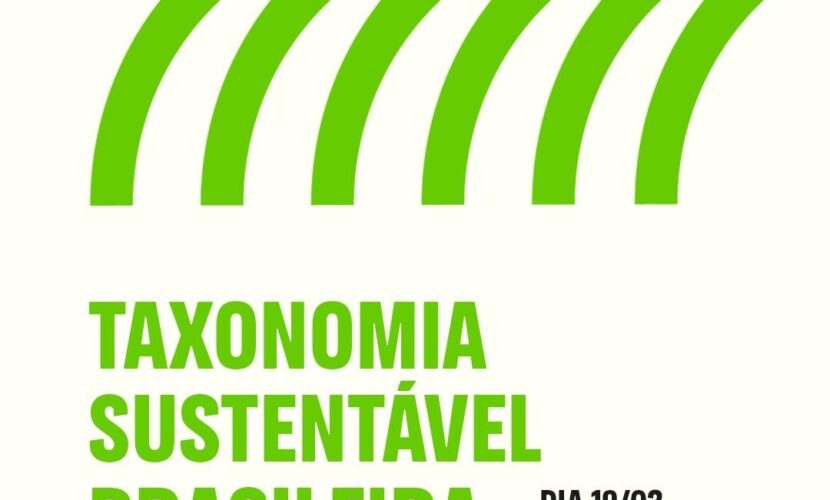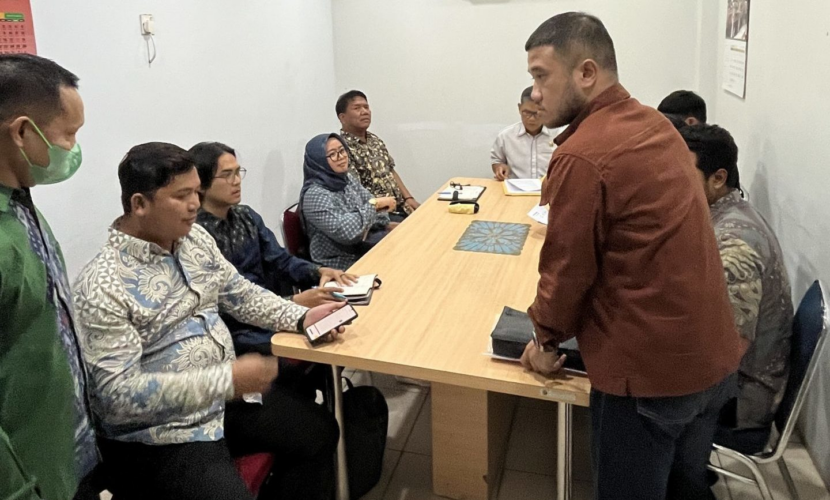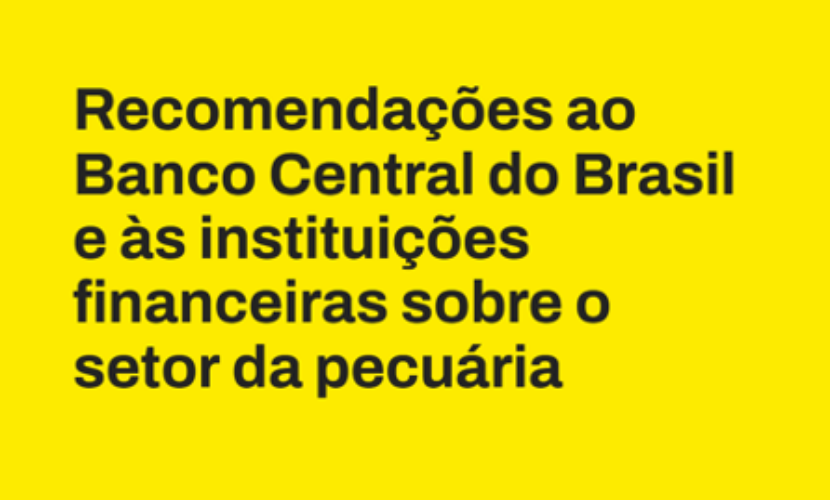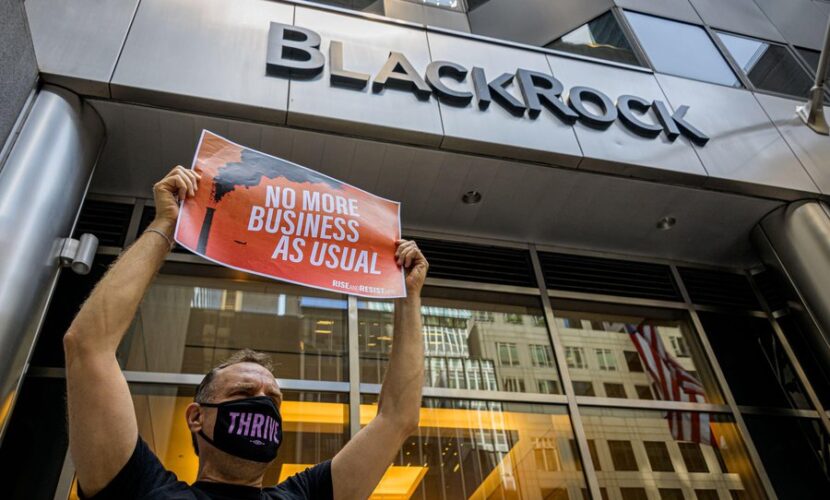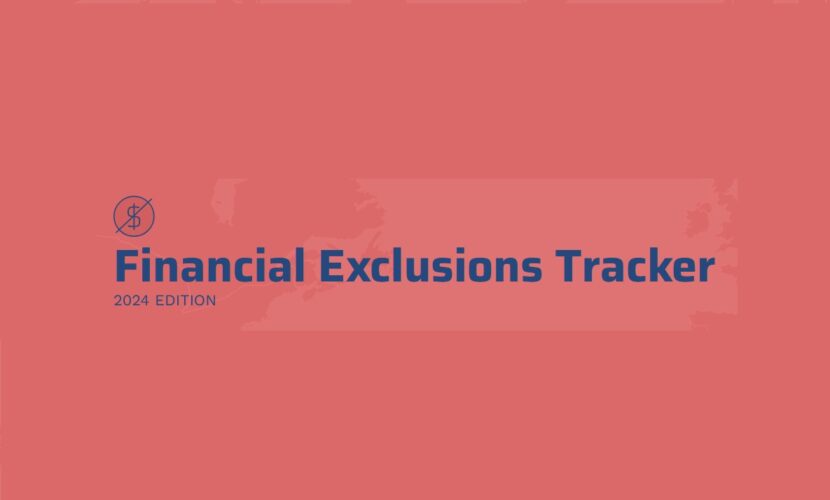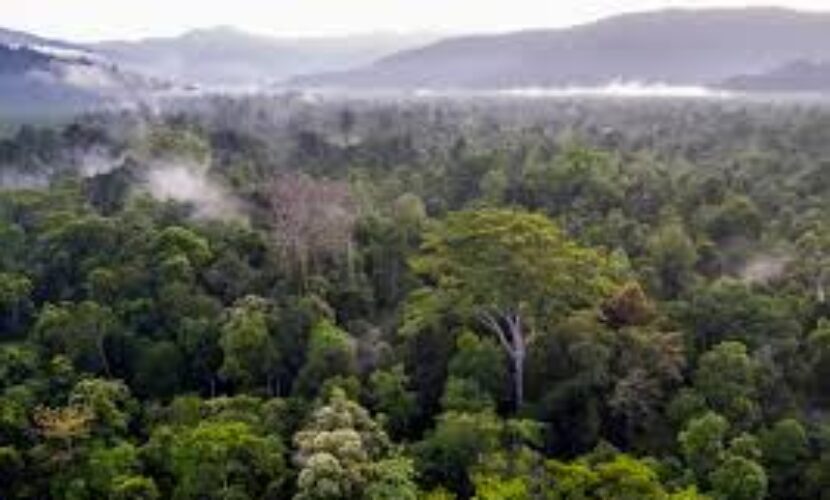News
Major Banks in Indonesia Financing Forest Destruction, Biodiversity Loss, Climate Chaos and Human Rights Violations
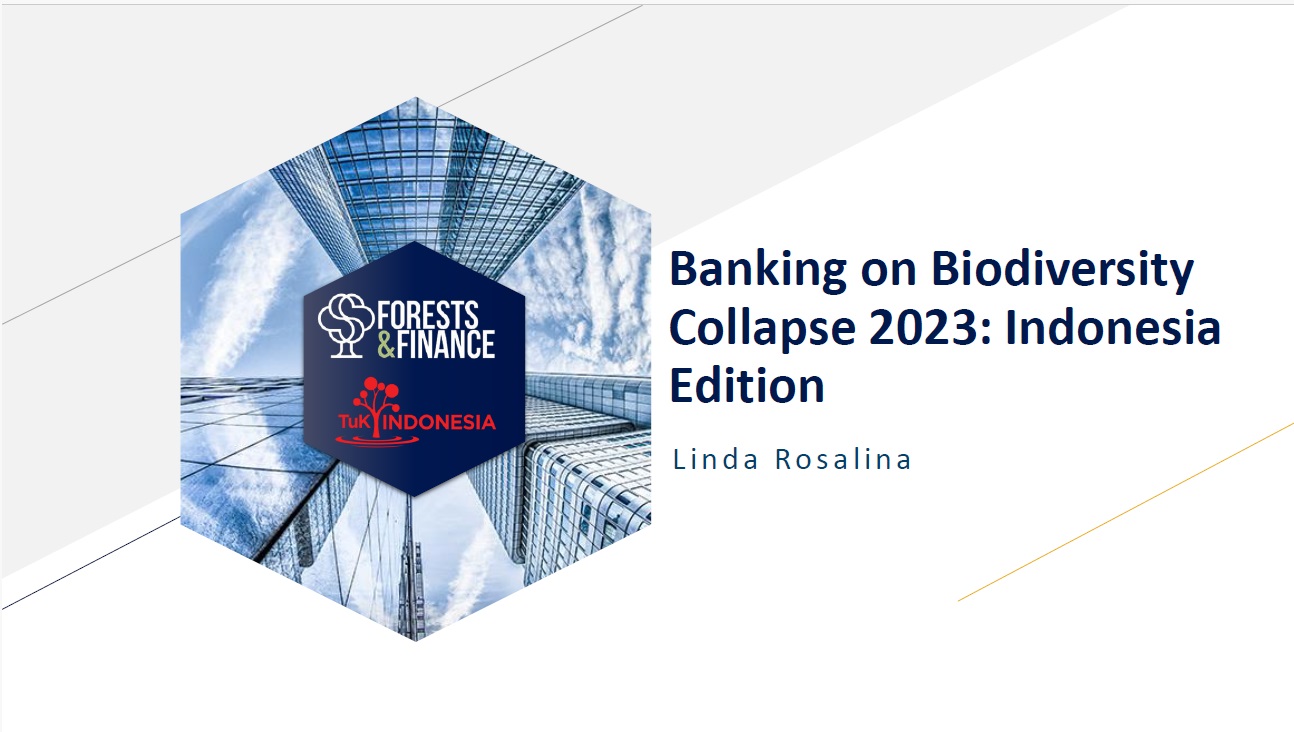
Banking on Biodiversity Chaos report finds over USD 30.5 billion flowing to finance forest-risk commodities, driving massive deforestation in tropical forests.
Jakarta, March 27, 2024 – TuK INDONESIA together with the Forests & Finance Coalition today released the Banking on Biodiversity Collapse (BOBC) report (Indonesian Edition) a comprehensive data on the role of big financing in driving deforestation, biodiversity loss, climate change, and human rights abuses in tropical forest regions. The report reveals that since the Paris Agreement, Indonesian banks such as Bank Mandiri, BRI, BCA and BNI have become the largest banks in Southeast Asia that risk forests in Indonesia. Based on market capitalization (June 2023), these banks provide financing of around USD30.5 billion (40%) of total credit to palm oil, pulp & paper, rubber and wood companies operating in Indonesia.
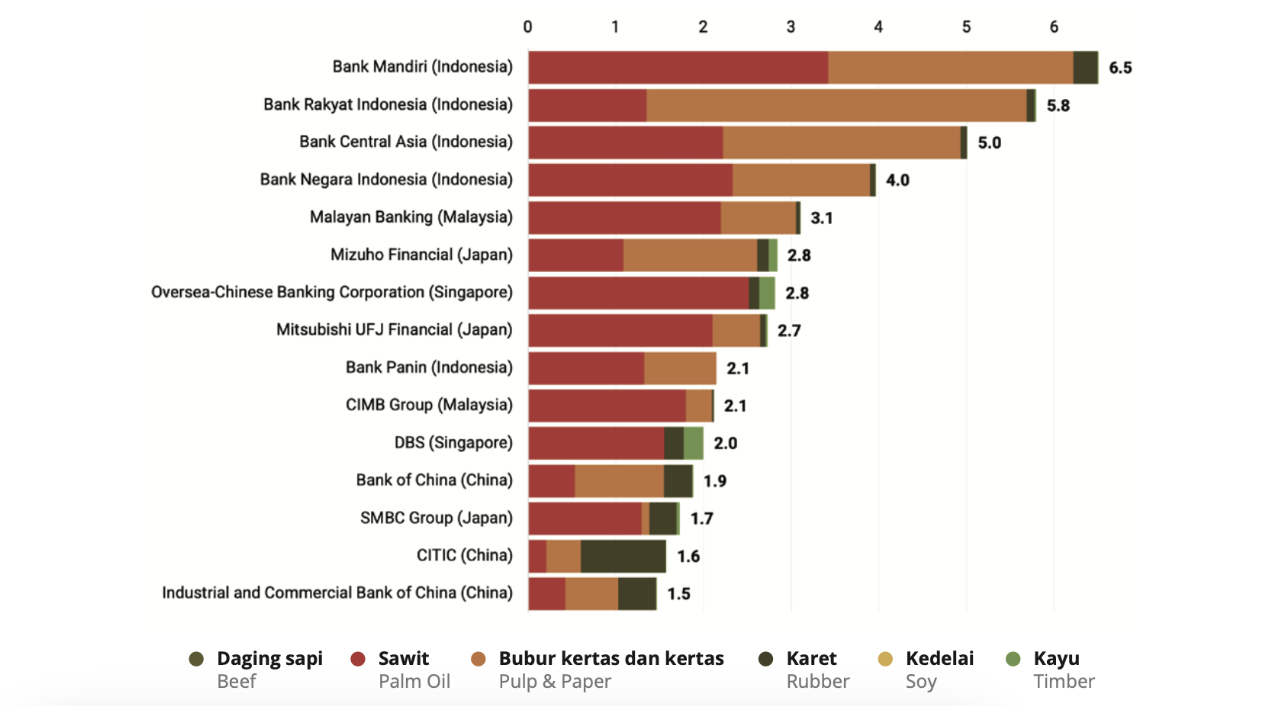
Linda Rosalina, Executive Director of TuK INDONESIA revealed that this report is evidence that the environmental, social and governance (ESG) policies of major banks in Indonesia are still lagging behind and have failed to prevent forest and biodiversity loss. “These banks should be enforcing the implementation of the No Deforestation, No Peatland Development, and No Exploitation (NDPE) commitment at the group level of forest-risk companies, and requiring these companies to comply with this commitment as a condition for financing their non-NDPE clients. However, the implementation of this commitment is often unclear and none of the five largest banks in Indonesia have adopted it, even though banks from Malaysia, Singapore and Japan have recently started to adopt policies in line with NDPE,” said Linda.
Other factors for the failure include the fact that the Indonesian financial sector has not yet addressed the risks associated with shell companies that are under the same control as the largest producer company groups in Indonesia. In addition, the weakening of the OJK’s Green Taxonomy as a regulator, which changed to the Indonesian Sustainable Finance Taxonomy (TKBI) in early 2024, has weakened environmental guidelines in several sectors including energy and mining, thus sending confusing signals to financial market players about where they should allocate their capital. TKBI has completely eliminated the ‘red’ category for a number of high-impact activities – for example, nickel mining – without any clear time limit for how long this transition category will last.
Among the credit recipients, Sinar Mas Group (SMG) – the controller of Asia Pulp & Paper and Golden Agri Resources – was identified as receiving 38% of the credit disbursed to this sector, while Royal Golden Eagle (RGE) Group received US$ 5.8 billion. Similar to SMG, financing to RGE is largely directed to pulp & paper, and a small portion to palm oil. However, this company has a long track record of human rights violations in its palm oil operations.
Bayu Herinata, Director of Walhi Central Kalimantan revealed how around 5,000 people from Hanau District, Seruyan Regency are still demanding plasma in the palm oil plantation of PT. Tapian Nadenggan, a subsidiary of Sinar Mas Group. “The company has been operating for two decades but until today has not realized one of its obligations, namely to build a plantation for the local community or plasma. The community’s demands by carrying out demonstrations in the field since 2022 have not yet received any certainty regarding the demands submitted to the company,” said Bayu.
Furthermore, Sinar Mas Group and Best Agro International Group in Central Kalimantan have carried out environmental destruction activities such as deforestation, operating in peatland ecosystems, polluting rivers and lakes, and human rights violations including land grabbing, land disputes, intimidation, violence leading to criminalization and death. To this end, Bayu urged banks that provide funding and buying companies to demand and ensure that companies comply with and implement the commitments made in the applicable policies and regulations.
Meanwhile, based on Pusaka’s documentation, there are 20 palm oil company groups that control large-scale plantation areas in Papua. One of them is Korindo Group or Tunas Sawa Erma Group (name changed since 2021) which controls 148,652 ha of land through seven companies.
Franky Samperante, Director of Pusaka assessed, “Investment that has entered Papua has caused the expansion of the conversion of customary forest areas into commercial commodity business areas and the transfer of control of land and forest ownership to a handful of investors, which marginalizes the existence and rights of customary communities.”
Furthermore, Franky assessed that the brutality of capital accumulation in the palm oil plantation sector has contributed to the increasing rate of deforestation and ecological disasters, extreme weather, drought and land fires, malnutrition and hunger, as well as physical and mental violence.
Through this report, TuK INDONESIA together with the Forest & Finance Coalition demand financial institutions such as banks and financial regulators like the OJK (Indonesia’s Financial Services Authority) to immediately take steps to align their financial flows with international public policy objectives. To achieve this, the financial sector must adopt at least 5 basic principles, including stopping and reversing biodiversity loss, respecting and prioritizing the rights of Indigenous Peoples and local communities, promoting a just energy transition, ensuring integrity of environmental, social, and governance (ESG) frameworks, and aligning institutional goals across sectors, issues, and instruments.
